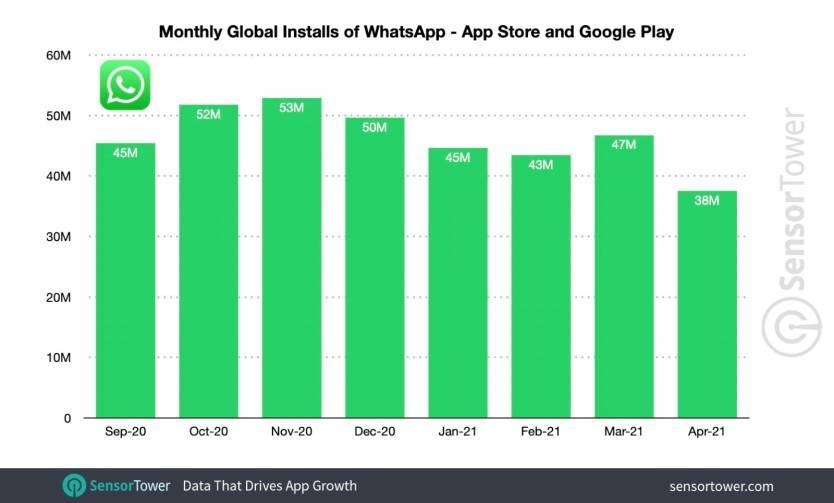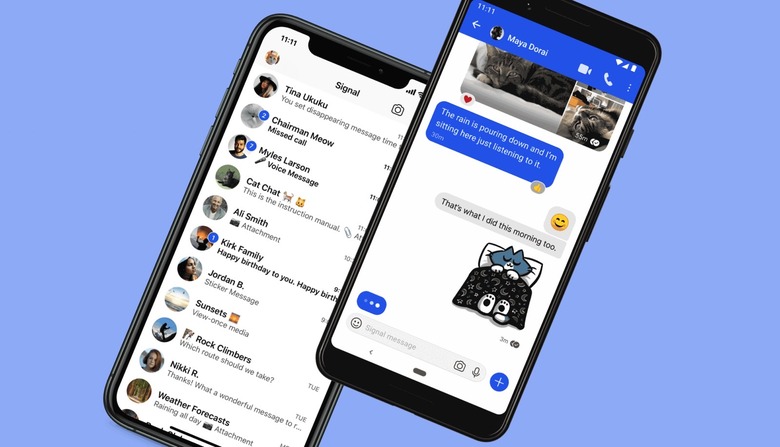New Data Shows How Big The WhatsApp Privacy Nightmare Is For Facebook
Facebook will roll out its controversial WhatsApp privacy policy update on Saturday. WhatsApp users will have to agree to the new policy to continue using the chat app in full. Facebook will not delete the app if you do not agree to the new terms of service, but it will gradually phase out features to the point that WhatsApp texting and calling might be impossible. Inactivity resulting from the inability to use the app might lead to account termination.
Facebook might not have canceled plans to update the WhatsApp privacy policy to collect more user data from e-commerce features inside WhatsApp, but the company's WhatsApp privacy nightmare isn't exactly over. A regulator in Germany already issued an injunction preventing Facebook from processing user data from WhatsApp. The German regulatory body urged its European peers to take similar action. Regulations aside, Facebook also has another serious problem of its own making. The WhatsApp privacy change fueled a renewed interest in competing WhatsApp chat apps, with millions of people downloading Signal and Telegram. A new report shows just how significant the problem might be for Facebook.
Leaving a popular platform such as WhatsApp is an almost impossible task for many people. WhatsApp works on iPhone and Android, offering the same end-to-end encryption protection to chats as iMessage and Signal. Telegram also supports end-to-end encryption, but it's not turned on by default for all conversations.
Ditching WhatsApp in favor of a different chat service might mean leaving behind friends and relatives who do not want to switch to a new app or find adapting to a different chat environment difficult. Despite that, millions of people have looked at alternatives, especially early in 2021 when WhatsApp prompts started telling them that Facebook will collect more user data.
Analyzing app downloads from the App Store and Google Play, SensorTower came up with actual figures that show just how significant the WhatsApp privacy policy change nightmare turned out to be for Facebook.

Telegram and Signal app global monthly downloads.
Telegram and Signal app downloads surged in January. Telegram reached 63.5 million installs, a 283% increase compared to January 2020. Telegram downloads have started normalizing since then, as seen in the graph above. In April, Telegram saw 26.2 million installs, 3% fewer than a year ago.
Signal's surge was even more impressive, with the app registering a 5,001% growth in January when it reached 50.6 million app installs worldwide — Signal saw 992,000 downloads in January 2020. Downloads fell dramatically in the following months, just as Facebook released explanations for the WhatsApp privacy update and extended the deadline to accept them to May 15th. Even so, Signal has been experiencing consistent year-on-year growth throughout April. Last month, Signal had 2.8 million downloads globally, more than double the 1.3 million installs from April 2020.
The report also offers stats for WhatsApp downloads, as seen below. WhatsApp experienced a drop in installs even before reminding users of the planned privacy change. Installs started declining at the onset of the coronavirus pandemic, as more people started spending more time at home. In April 2020, the app had 55.2 million installs globally, compared to 76.5 million in May.

WhatsApp app global monthly downloads.
WhatsApp's installs dropped to 45 million in January and then to 43 million in February before a slight rebound in March. But April's figures dropped to 38 million.
The numbers prove what we've known since January. WhatsApp is the world's most important chat app, and leaving it completely might be impossible for many people. But most iPhone and Android users experience a multi-chat universe where different chat apps are used for different groups of people. The graphs above indicate that millions of people are paying attention to Facebook's handling of their privacy. And they might convince millions of others to choose Signal, Telegram, and other apps over WhatsApp in the long run.
